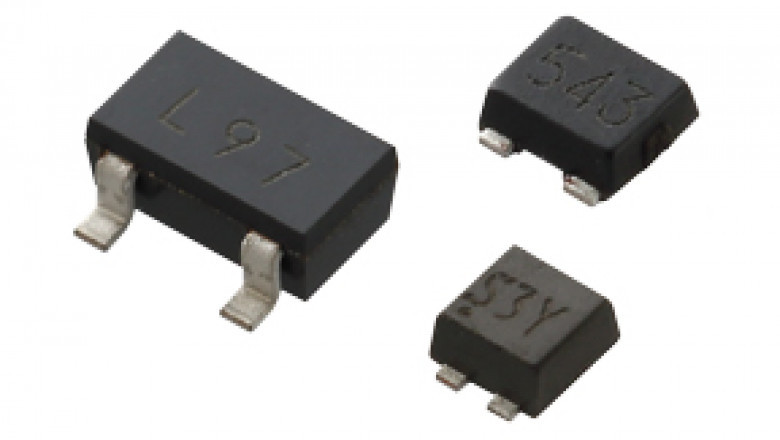views
Magnetic sensors have become an essential component in a wide array of applications across industries, ranging from automotive to consumer electronics, industrial automation, and healthcare. These sensors detect magnetic fields and convert them into electrical signals, offering valuable data for diverse processes. Over the years, the magnetic sensor market has witnessed substantial growth due to the rising demand for advanced sensing solutions and technological innovations.
Types of Magnetic Sensors
Magnetic sensors are broadly categorized based on the technology they use to detect magnetic fields. The main types include Hall effect sensors, magnetoresistive sensors, and fluxgate sensors, among others.
-
Hall Effect Sensors: These sensors are among the most common types, measuring the voltage generated by a magnetic field. They offer high precision and are widely used in automotive applications, such as wheel speed and position sensing.
-
Magnetoresistive Sensors: These sensors detect changes in resistance caused by magnetic fields. They are highly sensitive and are often used in industrial automation and medical devices.
-
Fluxgate Sensors: Known for their high accuracy and stability, fluxgate sensors are used in precise measurements of Earth’s magnetic field and for applications in geophysical studies and navigation systems.
Applications of Magnetic Sensors
The magnetic sensor market finds significant demand across various sectors. Key industries that rely heavily on magnetic sensors include:
-
Automotive Industry: Magnetic sensors are integral to modern automotive technologies, helping with engine control, electric power steering, and proximity sensing for airbag deployment. As electric vehicles (EVs) gain traction, these sensors are increasingly used for motor control and battery management.
-
Consumer Electronics: In smartphones, wearables, and other consumer gadgets, magnetic sensors are used for features like screen rotation, compass functions, and to measure user gestures.
-
Industrial Applications: In manufacturing, robotics, and automation, magnetic sensors play a crucial role in monitoring machinery performance, detecting motion, and providing feedback for control systems. They are also used in position sensing and flow measurement in industrial equipment.
-
Healthcare: Magnetic sensors are used in a variety of medical devices such as MRI machines, pacemakers, and in devices for monitoring biological signals. Their non-intrusive and highly sensitive nature makes them valuable for patient care.
Market Trends
The global magnetic sensor market is on an upward trajectory, with a notable increase in demand driven by advancements in technology and the proliferation of smart devices. Factors such as miniaturization, energy efficiency, and integration with IoT (Internet of Things) systems are further fueling the market growth.
The automotive sector remains a significant contributor to the growth of the magnetic sensor market. As automotive manufacturers push for safer, more efficient, and intelligent vehicles, the demand for sensors that can enhance vehicle performance, driver assistance systems, and electrification is accelerating. Additionally, magnetic sensors are playing a vital role in autonomous vehicles, aiding in accurate navigation and control.
In the consumer electronics market, the shift toward wearable devices and smart home technologies has contributed to the growing need for compact, high-performance sensors. The expansion of the Internet of Things (IoT) is also driving the demand for magnetic sensors that can support connected devices, enabling more responsive and intelligent systems.
Challenges and Opportunities
Despite its promising growth, the magnetic sensor market faces challenges such as the complexity of sensor integration and the high cost of some advanced sensor technologies. Additionally, as the demand for magnetic sensors grows, manufacturers must focus on improving the performance of these sensors, including their sensitivity and energy consumption.
However, the growing demand for sensor-based applications in emerging technologies such as 5G, automation, and robotics offers significant opportunities for market expansion. Moreover, the increasing adoption of electric vehicles and the shift toward clean energy solutions are likely to bolster the demand for magnetic sensors in the automotive and energy sectors.
Regional Analysis
Geographically, North America holds a significant share in the magnetic sensor market, driven by the presence of leading technology companies, high investments in research and development, and a strong automotive sector. Europe and Asia-Pacific are also notable markets, with Asia-Pacific expected to see the fastest growth due to its booming automotive and electronics industries.
In conclusion, the magnetic sensor market is poised for continued growth, driven by technological advancements, increased adoption of smart devices, and the ongoing transformation of industries such as automotive and healthcare. As magnetic sensor technologies evolve, they will play an increasingly vital role in shaping the future of several key sectors.






















Comments
0 comment